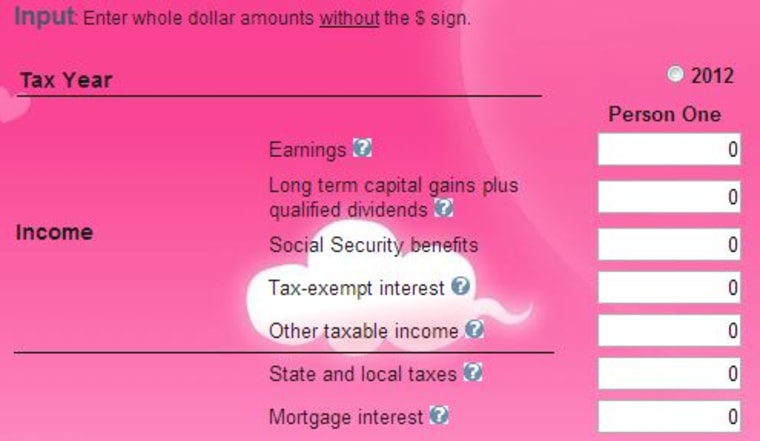For some couples, first comes love, then comes marriage – and then comes a higher tax bill.
For others, it’s love, marriage and then nice little gift from Uncle Sam: Lower taxes than if each person were single.
A new tool from the Tax Policy Center lets you find out whether you and your spouse could be subject to what’s called the “marriage penalty” – a quirk in our complicated tax laws that results in some married couples paying more in taxes than if they were single.
Roberton Williams, a senior fellow with the Tax Policy Center, said his previous research has shown that more taxpayers get a tax benefit from being married than pay a tax penalty.
He suspects that trend has moved even further in favor of married couples getting tax benefits in recent years, because of tax cuts enacted during the Bush Administration that are still in effect today.
Nevertheless, some couples do end up paying more taxes than before they were married.
A couple with high earnings could be pushed into a higher tax bracket than if they were filing alone under the new laws passed as part of the fiscal cliff deal, which put the highest tax bracket at $400,000 for individuals and $450,000 for married couples.
But Williams said low-income families can actually end up being hit hardest by the marriage penalty. That’s because major tax breaks designed to encourage people to work phase out as incomes go up.
For example, a single mom two kids under 13 making $10,000 a year could lose out on a lot of potential tax breaks if she marries someone with an income of about $30,000 a year. Using the Tax Policy Center’s calculator, a couple in that situation would pay a marriage penalty of more than $1,000, assuming no other deductions.
On the other hand, a family with two kids under 13 in which one spouse makes $100,000 a year and the other makes $20,000 would see a tax benefit from being married. According to the Tax Policy Center’s calculator, that couple would see a bonus of more than $400, also assuming no other deductions.
If you do end up paying a tax penalty, you can to take comfort in the fact that the financial gains are likely to outweigh the losses in the long run. Other research has shown that people who get and stay married tend to be wealthier than those who stay single or get divorced.
Want to see if you’ll get a tax bonus or a penalty? Check out the marriage penalty calculator.
Related: Here's how we want Uncle Sam to spend our tax dollars
